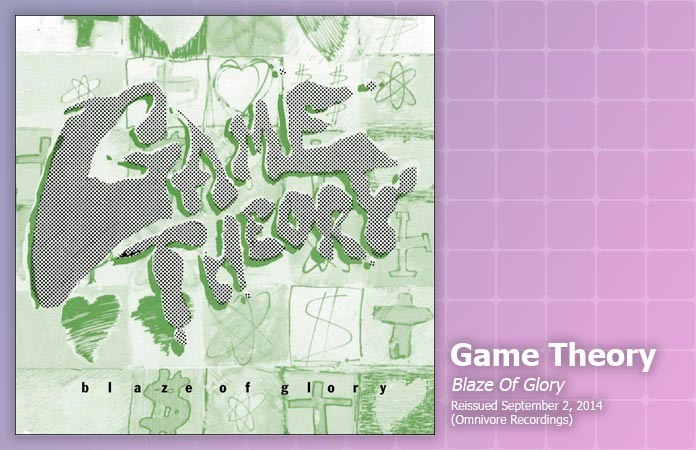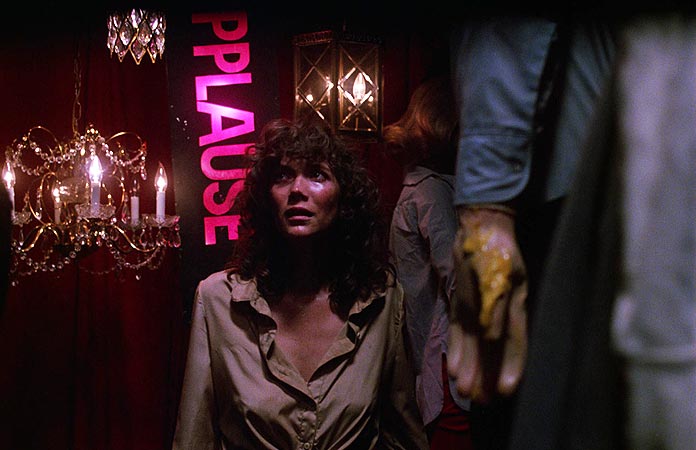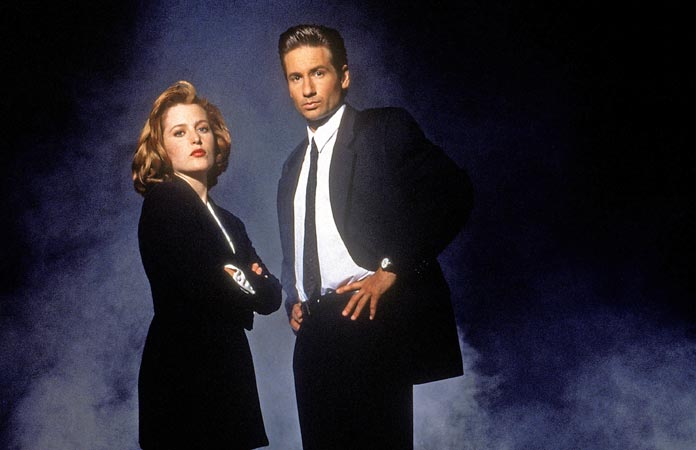Music Review: The Turtles, 45 RPM Singles Collection
Published on September 26th, 2014 in: Current Faves, Music, Music Reviews, Retrovirus, Reviews |One of the things that makes listening to music on vinyl different is how much attention must be paid to it. Putting an iPod on shuffle is easy, but not interactive. Listening to an album, or better yet, singles, makes me slow down, sit down, and actually listen to the music. It’s no longer background noise. It’s an experience.
Music Review: Utopia, POV (Reissue)
Published on September 19th, 2014 in: Music, Music Reviews, Reissues, Retrovirus, Reviews |Todd Rundgren’s music has always been an acquired taste. His chart hits have felt like flukes, strange cracks in the system. You aren’t supposed to know who Todd Rundgren is. He leads a cult that resides so far underground, they may as well be Morlocks.
One of the reasons for this status is Rundgren’s musical twitchiness. He jumps from style to style, from Philly white-boy blues to synth-pop, from down and dirty rock and roll to salsa. Never knowing what he’ll do next is exciting for some, laborious for others.
In the late Seventies, Rundgren formed a band called Utopia. It was designed to be his big foray into progressive rock, exploring grand concepts and incorporating deep philosophical lyrics. As it gradually shrank from seven members to four, Utopia became one of the sharpest New Wave bands of its time, delivering perfect three-minute pop songs, deliciously textured with soaring, shifting harmonies.
Blu-Ray Review: Graduation Day
Published on September 12th, 2014 in: Blu-Ray, DVD/Blu-Ray Reviews, Horror, Movie Reviews, Movies, Reissues, Retrovirus, Reviews |Back in the day Troma purchased a lot of films from different companies who were going out of business to build up their catalogue. Yes, Troma’s name is all over the old DVD and their logo is on the back on this Blu-Ray but Troma didn’t have anything to do with the making of the film. I only say this because the streak that Troma has isn’t a very good one. Luckily. we have Vinegar Syndrome who is going through Troma’s catalogue and pulling the good flicks out of the depths of their toilet and giving them a proper release.
Music Review: Game Theory, Blaze Of Glory (Reissue)
Published on September 5th, 2014 in: Music, Music Reviews, Reissues, Retrovirus, Reviews |By Cait Brennan
Scott Miller wrote and sang some of the most innovative, intelligent, moving indie pop of the past three decades. For years, though, the Game Theory catalog has been impossible to hear, keeping the work of this essential artist out of reach of all but the most devoted fans. Miller’s tragic passing in April 2013 galvanized efforts to change that, and America’s finest reissue label rode to the rescue. At long last, 1982’s Blaze Of Glory is back, with a bevy of bonus goodies, and it’s a harbinger of even bigger things to come.
Blu-Ray Review: Snuff
Published on September 5th, 2014 in: Blu-Ray, DVD/Blu-Ray Reviews, Movie Reviews, Movies, Retrovirus, Reviews, Underground/Cult |In 1976, a film called Snuff was exposed to the world. Snuff is vile, gross, and just plain weird, but it’s excellent at the same time. But let’s back up a bit first.
Blu-Ray Review: Rats: Night Of Terror/Hell Of The Living Dead
Published on August 22nd, 2014 in: Blu-Ray, DVD/Blu-Ray Reviews, Horror, Movie Reviews, Movies, Reissues, Retrovirus, Reviews |Rat movies seem to sprout up every once in a while over the years. I’m pretty sure none of them have been big successes but they are always fun in a cheesy way. Seriously, rats are the things that are killing people? Just fucking run away! Unless you are dealing with humungous rats, I’m sure this wouldn’t really pose a problem.
Blu-Ray Review: Runaway Nightmare
Published on August 15th, 2014 in: Blu-Ray, DVD/Blu-Ray Reviews, Movie Reviews, Movies, Reissues, Retrovirus, Reviews, Underground/Cult |Vinegar Syndrome has been going off the rails with the films that they have recently released. I freaking love what they are picking up. Now, they’ve unleashed a somewhat lost film called Runaway Nightmare. This is by far one of the most bizarre films that Vinegar Syndrome has released so far and one of the better ones as well. I can’t even begin to tell you what you are in for with this movie.
Blu-Ray Review: Curtains
Published on August 8th, 2014 in: Blu-Ray, Canadian Content, DVD/Blu-Ray Reviews, Feminism, Horror, Movie Reviews, Movies, Reissues, Retrovirus, Reviews |The 1983 Canadian tax write-off known as Curtains has long been out of print, except for deplorable VHS and DVD transfers. In the 30 years since its theatrical release, it’s become an iconic cult horror film, particularly because of its uniquely chilling ice skating murder sequence. Now, Synapse Films has restored the film from its original negative and released it on Blu-Ray. So, does Curtains hold up?
The Truth Was Out There: A Retrospective Of The X-Files
Published on August 8th, 2014 in: Comics, Retrovirus, Science Fiction, The Internets, TV, We Miss The Nineties |IDW’s re-release of The X-Files Classics series is about to reach its conclusion, with the final set of collated issues of The X-Files comic book being set to drop in just over a month. The first few volumes revealed a lot about the time in which the comic was made—mid-’90s Todd Macfarlane-esque splash pages abound—but also about the inventiveness and creativity which permeated the greatest seasons of the television show. In addition, the comic featured its own mythology, revealing shady Pentagon connections, crystal helmets, and hinting at the alien powers that Fox Mulder, among others, would wield in later seasons of the television show.
There are also some missteps. It seemed impossible to accurately draw poor Gillian Anderson’s face in 1995, her glorious visage distorted or squashed depending on the panel one happens to view. Much like the TV show, it was likely that the creators were up against real deadlines, turning out the product as quickly as possible to capitalize on the exponential success of the show.
Given that the comic book is, in essence, a microcosm of the show, it seems like we are more than overdue a proper reevaluation of the television show and films.
Music Review: Various Artists, Country Funk II, 1967 – 1974
Published on August 1st, 2014 in: Culture Shock, Current Faves, Music, Music Reviews, Retrovirus, Reviews |If you’re like me, the first thing you think when you hear the name “Kenny Rogers” is “that guy sure does bring the funk.” Perhaps, though, you don’t, and honestly, I didn’t either until I heard his track (with The First Edition) “Tulsa Turnaround” on Country Funk II, 1967-1974. “Tulsa Turnaround” is a swoony slow ride about an “Omaha honey” who learned the Tulsa Turnaround from someone called “Funkybutt,” I believe. I never did learn exactly what the Tulsa Turnaround is, but I did glean this nugget of information from the song: “If a man’s gonna eat fried chicken/he’s gonna get greasy.” It’s a pretty damned amazing song, and would be great on a soundtrack for a movie where there are car chases and someone is called “Rooster.”









